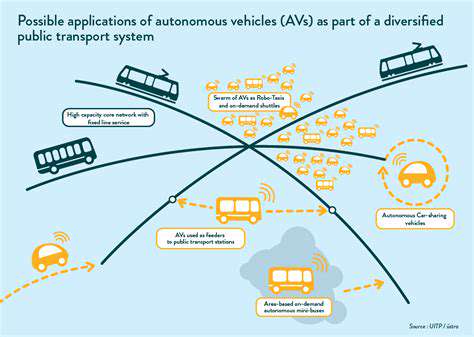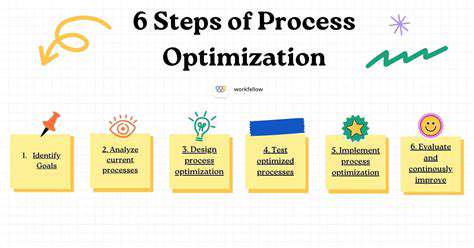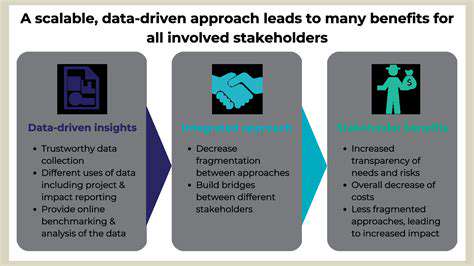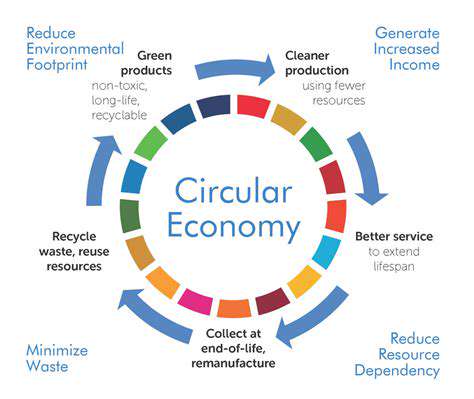How Driving Habits and Planning Can Minimize Range Anxiety
Understanding the Impact of Driving Habits
The way you drive plays a crucial role in how far your electric vehicle (EV) can go on a single charge. Quick starts, sudden stops, and driving at high speeds all drain the battery faster. Learning these details helps reduce worries about running out of power. For instance, keeping a steady speed, using cruise control when possible, and braking less can greatly increase how far your EV travels, making driving more enjoyable.
Additionally, getting to know your car's unique features, like how it recovers energy when slowing down and its efficiency ratings, lets you adjust your driving. Taking the time to understand how your habits affect your EV's range is essential for feeling more confident and getting the most from your electric car.
Strategic Planning for EV Journeys
Planning ahead is key to avoiding range worries, especially on long trips. Using apps and websites that show where charging stations are located and how long charging takes helps you plan your route better. This careful planning lets you see where you might need to stop and charge, so you won't worry about losing power unexpectedly.
Checking where charging stations are along your route and knowing what kind of charger your car uses are both important. These steps make your trip smoother and more predictable, cutting down on range anxiety and improving your overall experience with an electric vehicle.
Optimizing Charging Strategies for Maximum Range
How you charge your EV affects how much you worry about range. Knowing the differences between Level 1, Level 2, and Level 3 charging is important. Level 1 charging is slower but works well at home overnight. For longer trips, planning to use faster Level 2 or Level 3 chargers can quickly top up your battery, giving you enough power to reach your destination. Picking the right charging method helps you go farther with less stress.
Many EVs also have a pre-conditioning feature that can help. Using your car's system to prepare the battery before a long drive or when you expect to use a lot of power can improve performance. Thinking ahead about charging reduces anxiety and makes driving more reliable.
Being proactive about charging needs is key to enjoying your EV. Planning carefully ensures you can drive anywhere without fearing you'll run out of power. By adjusting how you drive, planning your trips, and charging smartly, you can reduce range anxiety and enjoy the freedom of electric travel.
The Impact of EV Range and Battery Technology on Perceived Anxiety
Range Anxiety: A Deeper Dive into the Issue
Range anxiety is a major hurdle for people thinking about switching to EVs. This fear comes from worrying about not finding a charging station in time, especially on long trips. It's not just about logistics—it affects how people see EVs in terms of practicality and reliability, which can stop them from buying one. Solving this issue is important for a greener future.
People are often unsure about where to charge and how long it takes. This uncertainty makes EVs seem less convenient for daily use, which can turn potential buyers away.
The Role of Battery Capacity in Range Anxiety
Bigger batteries mean longer ranges, so you don't have to charge as often, easing worries. New battery technology keeps improving, storing more energy in smaller spaces. However, these advanced batteries can make cars more expensive.
Many people compare EV ranges to gas cars, but actual range depends on driving conditions. How you drive, the road, and the weather all affect how far your EV can go, so it's important to set realistic expectations.
Charging Infrastructure and Its Impact on Range Anxiety
Having plenty of fast, easy-to-find charging stations helps reduce range anxiety. But in many places, there still aren't enough chargers, which makes people hesitant to switch to EVs. How many chargers are available and where they're located plays a big role in whether people see EVs as practical.
Battery Technology Advancements and Their Influence
Better batteries with more power and faster charging are helping ease range anxiety. For example, solid-state batteries could hold more energy and charge quicker, making range worries less of an issue in the future. People are watching these improvements closely to see how they'll make driving EVs easier.
Consumer Perception and Education Regarding EV Range
Many people have the wrong ideas about how far EVs can go and how long charging takes. Clear, honest information about range, charging, and where to find stations is important. Teaching people the facts can help change their minds and make them more likely to consider an EV.
Government Policies and Incentives to Address Range Anxiety
Laws and programs that support EVs can help reduce range anxiety. Tax breaks, discounts, and building more charging stations make EVs cheaper and easier to own. Government help with infrastructure and education can change how people see EVs and encourage more people to buy them.
The Future of Range Anxiety: A Shifting Landscape

Range Anxiety: A Historical Perspective
Range anxiety has been a big concern since EVs first appeared. People worried about how far they could go compared to gas cars. This kept many from buying EVs, so manufacturers had to find ways to ease these fears.
Early EVs couldn't go very far, making long trips hard and causing a lot of anxiety. This was a major roadblock to more people driving electric cars. Solving this problem has been a top priority for carmakers.
Technological Advancements in Battery Technology
Better batteries have made EVs go farther, which helps reduce range anxiety. New battery types, bigger packs, and smarter systems have all increased how far EVs can travel. This has made people more willing to buy them.
Improving battery tech is crucial for EVs' success because it lets drivers travel longer without stopping to charge. This progress is helping more people feel good about switching to electric.
Infrastructure Development: Charging Stations
More charging stations mean drivers can go farther without worrying. As charging networks grow worldwide, people feel more confident taking long trips in EVs. This is a big step toward making electric cars more popular.
Government Policies and Incentives
Laws that support EVs, like tax breaks and funding for charging stations, encourage people to buy them. These policies help create an environment where more drivers feel comfortable making the switch.
Consumer Perception and Education
Teaching people about EVs can change their minds. Campaigns that explain how EVs work and what they can do help people feel better about them. This understanding builds confidence in EVs and their future. Knowing the benefits is key to moving toward cleaner transportation.
The Future of Range Anxiety: Predictions
As batteries keep improving, chargers become more common, and people learn more about EVs, range anxiety should fade. With these changes, EVs will meet more drivers' needs for long trips, making transportation greener and more sustainable. The future is electric, and range anxiety won't be as big of a concern.











